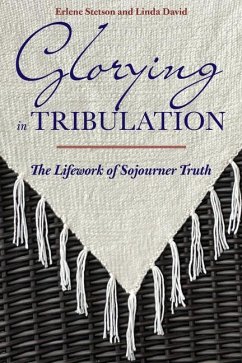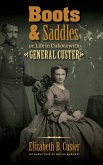Sojourner Truth's great contributions to the nineteenth-century abolitionist debate and the struggle for woman suffrage are extraordinary in both form and content. Far from excluding her from the discourse of politics, her illiteracy provided a foundation for the development of her ideology. She also proved to be adept at turning her audiences' beliefs and laws into justifications for her own unpopular views. Truth drew on a uniquely modern and secular source of authorization and empowerment - what she called "the deeds of my body" - and she is rightfully remembered, not only for her thoughtful and systematic attacks on inequality, but also for recognizing the coming crisis in the relationship between feminist and abolitionist factions. To this day Truth's legacy challenges deep-rooted historical beliefs about cultural ownership, about the qualifications for citizenship and suffrage, and about the role played by African American women in claiming those rights. Even a brief review of the stories of Truth's life shows why it is not surprising that she is more commonly thought of as a legendary than a public figure. There is considerable evidence that Truth and those around her used and cultivated her heroic image. Contradictions in the various life stories of this nineteenth-century freedwoman are therefore no less relevant to her success and influence than the limited information we can prove by consulting records of her participation in the abolition and woman suffrage movements. Recognizing this, Erlene Stetson and Linda David have embraced the uncertainty surrounding Isabella Bomefree's history to go beyond biography. The authors have traced not only the life, but also the lifework ofSojourner Truth, providing the reader with a context for Truth's own manipulations of language and fact, as well as those of her supporters, opponents, and even "unbiased" reporters of contemporary events. Stetson and David place the various sources for information about this legendary figure within the framework of individual perspective and agenda, often providing extraordinarily disparate accounts of Truth's voice and words. They identify parallels between Truth's various and contradictory recorded experiences and those of her family, friends, and captors, as well as those expected of her by her audiences. These methodologies offer both explanations and justifications for apparent contradictions in what is known about the woman who named herself Sojourner Truth. Glorying in Tribulation offers not only an excellent perspective on Sojourner Truth, but also considerable insight into how she has become one of the most influential and best-remembered activist orators of her time. This is the story of how one woman exploited her notoriety without sacrificing her principles, even when her goals came into conflict with such powerful historical icons as William Lloyd Garrison and Elizabeth Cady Stanton. It is also the remarkable tale of how one woman was continuously able to "rewrite" her own legend in order to leave a legacy of her choosing.
Hinweis: Dieser Artikel kann nur an eine deutsche Lieferadresse ausgeliefert werden.
Hinweis: Dieser Artikel kann nur an eine deutsche Lieferadresse ausgeliefert werden.








